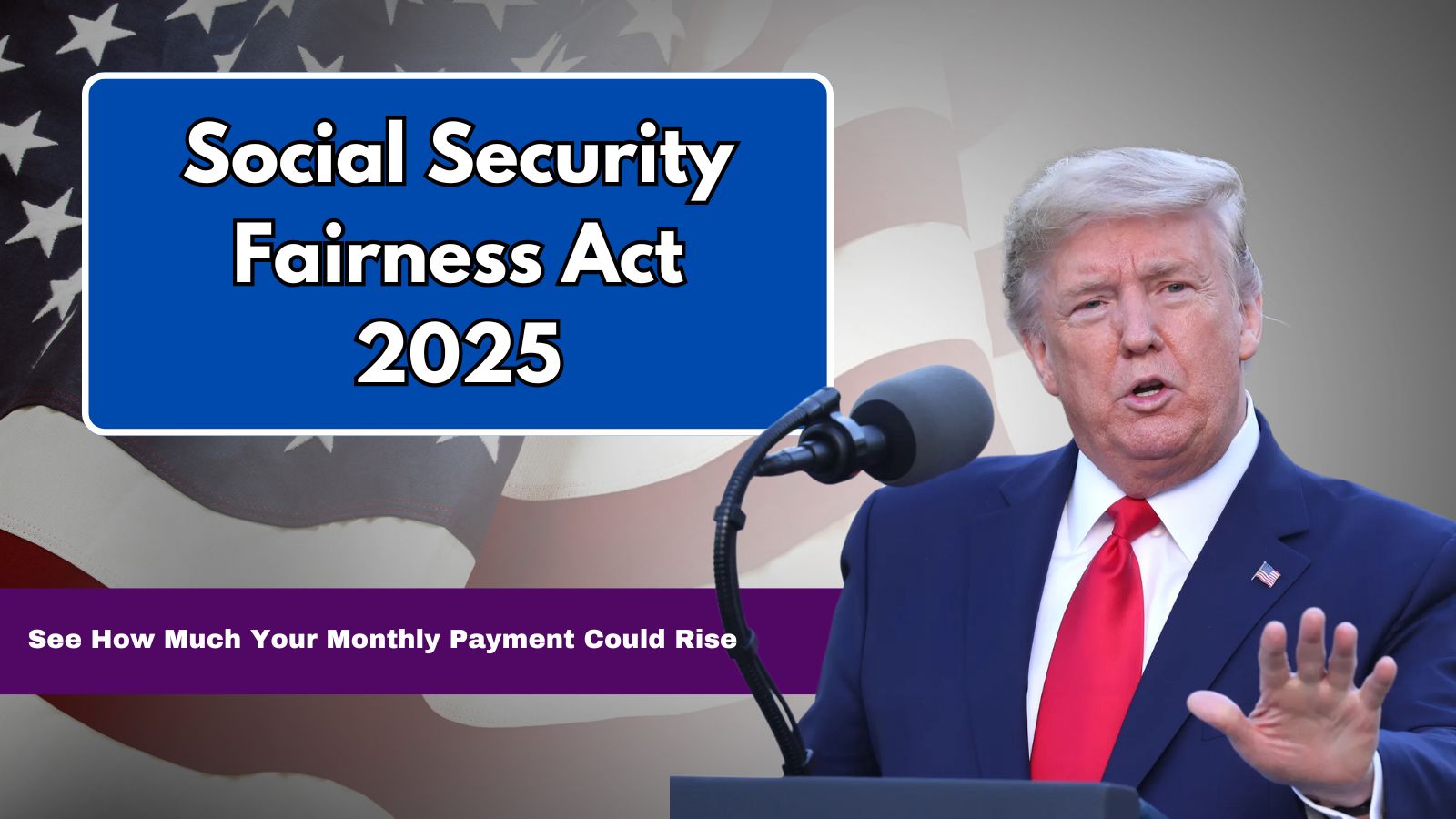Millions of retired public service workers in the United States have just received long-overdue financial relief. Thanks to the Social Security Fairness Act, retirees who previously had their benefits unfairly reduced due to outdated provisions will now receive significantly higher monthly payments.
Signed into law by President Joe Biden on January 5, 2025, this landmark legislation eliminates the Windfall Elimination Provision (WEP) and the Government Pension Offset (GPO). These two rules had long penalized retirees—especially teachers, firefighters, police officers, and other public service workers—by slashing their Social Security benefits simply because they had pensions from jobs that didn’t require Social Security tax contributions.
So, how much extra money will beneficiaries receive each month? How will the Social Security Fairness Act impact retirement benefits? Let’s break it down in detail.
Social Security Fairness Act: What Changed?
For years, the Windfall Elimination Provision (WEP) and the Government Pension Offset (GPO) reduced or completely eliminated Social Security benefits for certain retirees. These provisions were originally designed to prevent individuals from “double-dipping”—receiving both a public pension and full Social Security benefits. However, they had unintended consequences, unfairly penalizing people who had paid into Social Security for part of their careers.
The Social Security Fairness Act repeals both provisions, ensuring that affected individuals now receive full benefits based on their contributions.
Social Security Fairness Act: Who Was Affected by WEP and GPO?
The WEP and GPO disproportionately impacted public service employees who had pensions from non-Social Security-covered jobs, including:
- Teachers
- Firefighters
- Police officers
- Federal employees under the Civil Service Retirement System (CSRS)
- State and municipal employees in non-Social Security-covered roles
- Workers covered by foreign Social Security systems
For these individuals, WEP reduced their Social Security payments, while GPO slashed spousal or survivor benefits—often to zero. This meant that many retirees who had worked part of their careers in Social Security-covered employment, or whose spouses had paid into Social Security, were receiving much lower benefits than they had earned.
Social Security Fairness Act: How Much Will Benefits Increase?
With the elimination of WEP and GPO, affected retirees will see substantial increases in their Social Security benefits. According to estimates from the Congressional Budget Office (CBO), the expected monthly benefit increases are as follows:
| Minimum Increase | Maximum Increase |
|---|---|
| $360 per month | $1,190 per month |
The exact amount each individual will receive depends on factors such as their work history, pension amounts, and years of Social Security-covered employment. For some retirees, this change could mean thousands of extra dollars per year in retirement income.
Social Security Fairness Act: When Will Higher Payments Start?
The Social Security Administration (SSA) has already started adjusting payments, but the timeline for full implementation varies. The SSA is expected to complete the recalculation of benefits by the end of 2025, ensuring that all eligible retirees receive the correct payment increases.
Retirees should monitor their Social Security statements and check official SSA updates to track their payment adjustments.
Social Security Fairness Act: Will Retirees Get Retroactive Payments?
Yes! In addition to higher future payments, the Social Security Fairness Act includes retroactive lump-sum payments for affected beneficiaries. These payments will cover the benefit increases owed from January 2024 onward, ensuring that retirees receive the money they should have been paid all along.
This retroactive component is particularly significant for retirees who had been struggling with reduced benefits for years. Some individuals may receive lump-sum payments totaling thousands of dollars, depending on how much they were previously underpaid.
Social Security Fairness Act: A Major Win for Retirees
For millions of retired public servants, the Social Security Fairness Act represents long-overdue financial relief. It corrects past injustices and ensures that retirees receive the benefits they rightfully earned.
This new law is especially impactful for:
- Retired teachers who worked in public schools but also had Social Security-covered jobs
- Firefighters and police officers with government pensions and previous Social Security contributions
- Federal employees under CSRS, whose Social Security benefits were unfairly reduced
- Surviving spouses who were denied Social Security benefits due to GPO
Social Security Fairness Act: What Should Beneficiaries Do Next?
If you or a loved one is affected by this change, it’s essential to stay informed:
- Check your Social Security benefits statement – Look for updated payment amounts in your SSA account.
- Monitor SSA announcements – Keep an eye on official updates regarding payment timelines.
- Understand your new benefits – If necessary, consult with a financial advisor or Social Security expert to determine how this change impacts your retirement planning.
- Ensure retroactive payments are received – If you are owed back pay from January 2024 onward, make sure it is properly processed.
Social Security Fairness Act: What’s Next?
The passage of the Social Security Fairness Act marks a significant step toward equitable retirement benefits for public service workers. However, some advocates believe more reforms are needed to ensure Social Security remains strong for future generations.
While this law addresses longstanding issues for WEP and GPO-affected retirees, lawmakers continue to discuss broader Social Security reforms, including potential benefit expansions and adjustments to funding mechanisms.
For now, retirees affected by WEP and GPO can finally enjoy the financial security they deserve, knowing that their service to their communities is being honored—not penalized—by the Social Security system.
FAQs: Social Security Fairness Act
What is the Social Security Fairness Act?
It eliminates the Windfall Elimination Provision (WEP) and Government Pension Offset (GPO), increasing Social Security benefits for many public service retirees.
Who benefits from the new law?
Teachers, police officers, firefighters, and federal employees under CSRS, along with others who previously had benefits reduced due to WEP or GPO.
How much will Social Security benefits increase?
Monthly increases range from $360 to $1,190, depending on work history, pensions, and previous Social Security contributions.
Will retirees receive retroactive payments?
Yes, affected retirees will receive lump-sum payments covering benefits owed from January 2024 onward.
When will higher Social Security payments start?
The SSA is currently adjusting payments, but a full rollout is expected by the end of 2025.
The Social Security Fairness Act is a monumental victory for millions of retired public servants. With higher benefits, retroactive payments, and a fairer system, this law ensures that those who dedicated their careers to serving others receive the financial security they rightfully earned. If you or a family member qualifies for increased Social Security payments, stay informed and make sure you claim your rightful benefits!
Some Important Link
| Telegram Group | Click Here |
| WhatsApp Group | Click Here |
| Home Page | Click Here |





